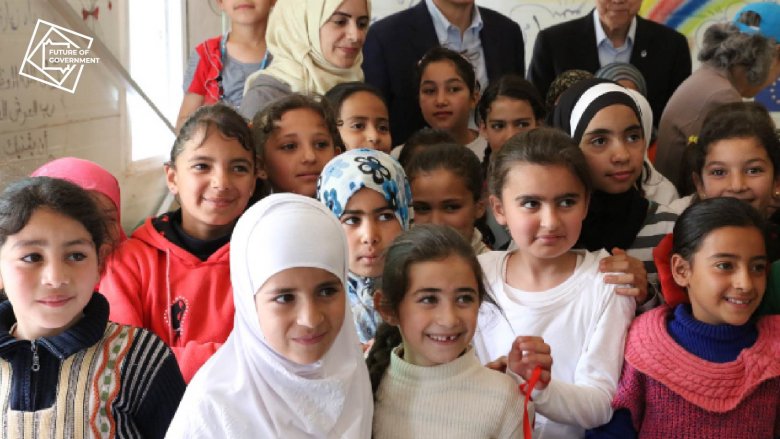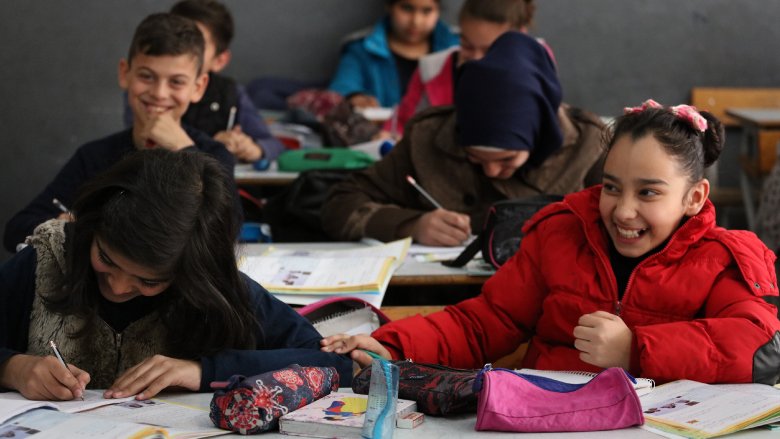Improving engagement between schools, teachers, and students
The School and District Development Program supported increased, higher-quality dialogues at several levels of the education system. At the school level, principals had to reconceptualize their role as school leader from one that is solitary and autocratic to one that is inclusive, transparent, and consensus-based, adopting a form of distributed leadership. “The principal is constantly in contact with the parents. He has all our numbers and he’s the center of contact, as he is aware of all the school problems,” explained one parent.
However, realizing a common vision and commitment to the effective delivery of education requires in every country the forging of a sustained complementarity between informal and formal systems. To this end, the school requested to hear from parents on how to align its vision with that of the community.
Feedback from parents
Soliciting feedback from parents via a questionnaire as part of the input to the school improvement plan was at first regarded by parents as a “test.” The result was low initial response rates, but over time (and with further encouragement from teachers, principals, and leaders), parents realized that such information provided a useful and rational basis on which difficult decisions could be made. “Now the engagement with the community is different: it’s regular, they are involved in decision making, they oversee and support the school,” observed Hasan, the teacher and former student at Zeid Bin Haritha School.
Community and school problems could range from how to utilize the school grounds to how to address a student’s learning disability - or to identify the kind of additional services a parent can provide. By leveraging social and community relations, the schools in Ira and Yarqa solved local problems through transparent procedures that were agreed locally.
The government of the future could take lessons from this approach. Reform often succeeds to the extent that it coherently and legitimately maps its policies onto prevailing local norms and governance mechanisms and, when necessary, incrementally curbs the undue influence of powerful local elites - including by levelling the scope for accountability across a wide interest group, such as parents.
Measures like those tried in Jordan in 2015 might not work in every context - it might depend on the starting capabilities a of parents and other actors in the system. Realizing that these types of reforms are a collective social task that, like any such task, requires persistence, learning, and a tolerance for occasional setbacks.
This case study is drawn from Trust, Voice, and Incentives : Learning from Local Success Stories in Service Delivery in the Middle East and North Africa.


